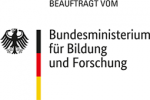 Foto: Shutterstock
Foto: ShutterstockCHE has been commissioned by Germany’s Federal Ministry of Education and Research (BMBF) to conduct a study on the current status of dual study in Germany. The analysis is being undertaken in collaboration with Forschungsinstitut Betriebliche Bildung (f-bb). The aim of the study is to provide an overview of implementation models specific to federal states, and to analyse conditions for success and influencing factors. Both the supply and demand sides are considered, using empirical data obtained from surveys of participating higher education institutions (HEIs) and vocational academies, dual students and companies.
Besides leading the project, which will run until April 2022, CHE is mainly responsible for tackling the following two parts of the study:
- An analysis of the current situation in all 16 federal states. To begin with, a systematic comparison will be made of the structural and design features of the dual study programmes offered at HEIs and vocational academies. First-year students and other students enrolled at those institutions, as well as graduates who have completed dual study there, will also be systematically compared. This will be done on the basis of empirical data obtained from a survey of programme directors, for instance. In addition, the legal framework conditions will be analysed and compared.
- An analysis of dual students’ motivation factors concerning the decision to go to university, their choice of degree programme, and their tendency to leave university prematurely. Further consideration will be given to aspects related to the structuring of dual students’ employment relationships, as well as more detailed information on their socio-economic background. Student surveys, among other things, will be conducted in order to obtain valid findings.

The client
f-bb is responsible for undertaking a survey of companies and conducting individual interviews on the demand side. Findings from the analyses will be discussed in a series of workshops with stakeholders from HEIs, companies, associations and higher education policy, and presented in a closing expert discussion. Recommendations for action with regard to current needs for development will be derived from the results.
The reason for the study is a resolution of the German Bundestag passed in autumn 2019. One of the aspects contained in this resolution was a call for the Federal Government to have a scientific study conducted to determine whether there is a need for regulation, based on how dual study programmes have developed in Germany to date. Based on the results of the study, the Board of the Federal Institute for Vocational Education and Training (BIBB), in cooperation with the Standing Conference of the Ministers of Education and Cultural Affairs (KMK), will be asked to team up to make recommendations on appropriate framework conditions for dual study programmes.
Link to the project overview.

Cooperationpartner
